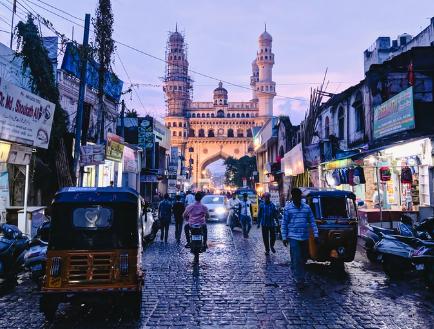NEWS
INDIA’S LIQUOR SALES DOWN 29% IN H1, INDUSTRY URGES STATES TO ROLL BACK COVID TAX
By Siulan Law Mathews DipWSET
9-11-2020

Credit: Shubham Rath/Unsplash
India’s liquor sales dropped 29 percent in the first half of this fiscal year, due to the total ban on liquor sales during lockdown followed by steep corona tax levied by some states, according to latest data released by Confederation of Indian Alcoholic Beverage Companies (CIABC).
The trade body urged state governments which continue to levy steep corona tax on alcohol to roll back the tax to reasonable levels.
India’s fiscal year runs from April to March next year, CIABC’s data showed that the first quarter, April to June, saw sales slump by 49 percent, while in the second quarter sales were down by 9 percent.
Leaving out April when entire liquor trade was shut down under lockdown, sales for the period from May to September was down 16 percent over same period last year.
CIABC said the degree of liquor sales slump varied from state to state. In states where the state governments levied high post-lockdown liquor tax the declines are much steeper.
The top five states which reported highest drop in sales in the second quarter after lockdown are Andhra Pradesh (-51 percent), Chhattisgarh (-40 percent), Jammu & Kashmir (-39 percent), West Bengal (-22 percent) and Rajasthan (-20 percent), all of them continue to impose high corona taxes on liquor.
While the top five states which have shown improvement in second quarter sales are Punjab (+20 percent), Haryana (+17 percent), Uttarakhand (+15 percent), Telangana (+7 percent) and Uttar Pradesh (+6 percent), all of them stayed away from imposing high Covid taxes.
Commenting on the data, CIABC Director General Vinod Giri said: “The inclination of some state governments to impose high taxes on alcohol, assuming it will yield greater revenues, is greatly misplaced. There is empirical evidence that price increases above 5 to10 percent tend to start suppressing demand causing fall in sales volume, thus defeating the whole purpose of tax increase.”
“It is also a well-established fact that with rising prices consumers tend to down-trade to cheaper options. Cheaper options mean less tax per bottle to the government. High taxes and resultant prices also lead to several other law and order issues such as rise in smuggling of alcohol from neighbouring states, counterfeiting of alcohol and production of illegal alcohol and hooch which is a known health hazard,” Giri said.
“We are glad to note that some state governments that had imposed high taxes have reviewed information and rolled back tax increases. However, some states continue to persist with high taxes. We are concerned about what future holds in those states and have highlighted to respective governments that they must roll back tax increases in order to arrest the fall in sales, sustain tax collection, and prevent consumer misery,” Giri added.
(the writer can be contacted at: info@thewinechronicle.com)
ALL RIGHTS RESERVED
**IF YOU THINK THE WINE CHRONICLE IS WORTH SUPPORTING, PLEASE MAKE A DONATION TO HELP US IMPROVE AND CONTINUE OUR WORK**
TRENDING│ FOCUS│ MISSION│ ABOUT US│ CONTACT
| 
